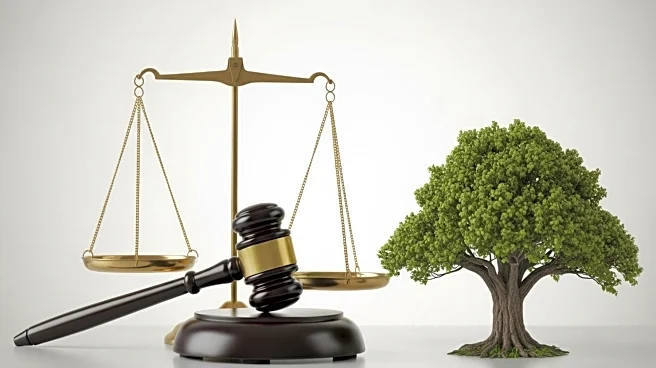What's Happening?
Federal Reserve Governor Lisa Cook has filed a legal argument urging the Supreme Court to reject President Trump's attempt to remove her from her position. Cook's lawyers argue that granting the President's request would undermine the independence of the central bank and disrupt financial markets. The filing responds to the Justice Department's emergency request to lift a federal judge's order that blocked Trump from removing Cook over mortgage fraud allegations. Cook's legal team emphasizes the need for a 'meaningful check' on the President's ability to remove a governor, warning that unchecked power could lead to arbitrary dismissals based on flawed charges. The case has attracted attention from former Fed chairs, including Ben Bernanke and Janet Yellen, who filed an amicus brief supporting Cook, arguing that such a removal would erode public confidence in the Fed's independence and threaten economic stability.
Why It's Important?
The case highlights the tension between executive power and the independence of financial institutions. If the Supreme Court sides with President Trump, it could set a precedent for increased presidential control over the Federal Reserve, potentially leading to instability in financial markets. The independence of the Fed is crucial for maintaining economic stability and public confidence, as it allows for unbiased decision-making free from political influence. The outcome of this case could have significant implications for the governance of the Federal Reserve and its ability to operate independently, affecting monetary policy and economic conditions in the U.S.
What's Next?
The Supreme Court's decision will be pivotal in determining the balance of power between the executive branch and independent financial institutions. If the court allows the removal, it may lead to further legal challenges and potential changes in the composition of the Federal Reserve Board. Stakeholders, including financial markets and political leaders, are closely monitoring the situation, as the decision could influence future appointments and the Fed's policy direction. The case may also prompt discussions on legislative measures to protect the independence of the Federal Reserve.
Beyond the Headlines
The legal battle raises broader questions about the role of political influence in financial governance. It underscores the importance of safeguarding institutional independence to prevent potential abuses of power that could destabilize economic systems. The case may lead to increased scrutiny of the criteria for removing central bank officials and the need for clear legal standards to ensure accountability without compromising independence.










